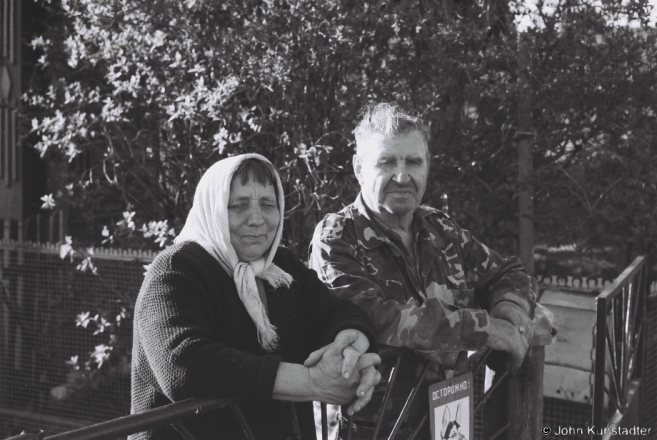Expedition to the concentration of ethnotoponyms (ethnically-, tribally- or geographically-related toponyms) around the district center of Ljakhavichy (Ляхавічы) in western Belarus (part ІХ): Mazurki (Мазуркі).
In the evening light Aljena and S’tsjepan talked to me about their village and its Polish-origin name, associated with the former, long destroyed estate of the Krahel’ski family.
They noted that before the local forest grew so thick the villagers of Mazurki could see the spire of the Catholic church of the Apostles Peter and Paul three kilometers distant in the village of Mjadz’vjedzichy. See photos of the day for January 3-4, 2013.
It bears recalling that the parish in Mjadz’vjedzichy resisted all attempts by the Soviet authorities to close the church. Returning from a sentence in the Soviet GuLAG, Father Vatslau Pjantkouski, Mjadz’vjedzichy’s legendary priest in the decades after World War II, ran an underground seminary which trained, among others, Anatoli Dzjam’janka, the current Catholic bishop of Pinsk.
Вандроўка па этнатапонімах вакол Ляхавічаў (частка ІХ): Ятвезь, Вялікая Лотва, Літва, Туркі, Сакуны, Ляхавічы, Русінавічы, Жомайдзь (Клецкі р.), Мазуркі, Цыгань, Літоўка, Русіно.
